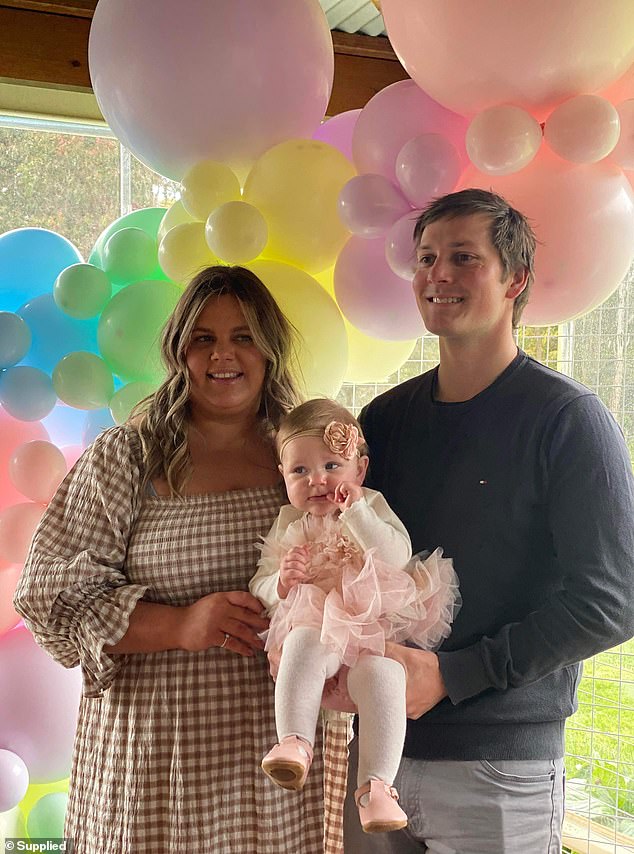Amy Lynch had her whole life ahead of her.
The then 27-year-old and her partner Simon were proud parents of two young daughters and lived a “normal, happy life” tending to their farm in regional Victoria.
But in August 2022, life as they knew it changed forever when Amy was diagnosed with motor neurone disease (MND), a terminal neurological disorder that affects the brain and nerves.
“Living with ALS is like being trapped in your own body. I’m a lesser version of myself,” Amy, now 29, told FEMAIL.
Before the shocking diagnosis, the young couple had always tended to the broken fences on their farm, fed the cattle and visited family in Melbourne.
Amy is now a quadriplegic, can barely speak, cannot perform simple tasks such as dressing or showering, and relies on constant support from her caregivers and family.
The hardest part of their tragic situation is thinking about missing out on their children’s milestones as they grow up.
“As far back as I can remember I’ve always wanted to be a mother, but now that I am one it seems so unfair that my daughters will never know me without this disease. They won’t see their mom and dad together like we dreamed of on our farm living a busy but simple life,” Amy said.
Amy Lynch and her partner Simon are the proud parents of two little girls and were living a “normal life” looking after their farm in regional Victoria. But in August 2022, life as they knew it changed forever when Amy was diagnosed with motor neurone disease (pictured before diagnosis)

“Living with ALS is like being trapped in your own body – I’m a lesser version of myself,” Amy, now 29, told FEMAIL (pictured before diagnosis)
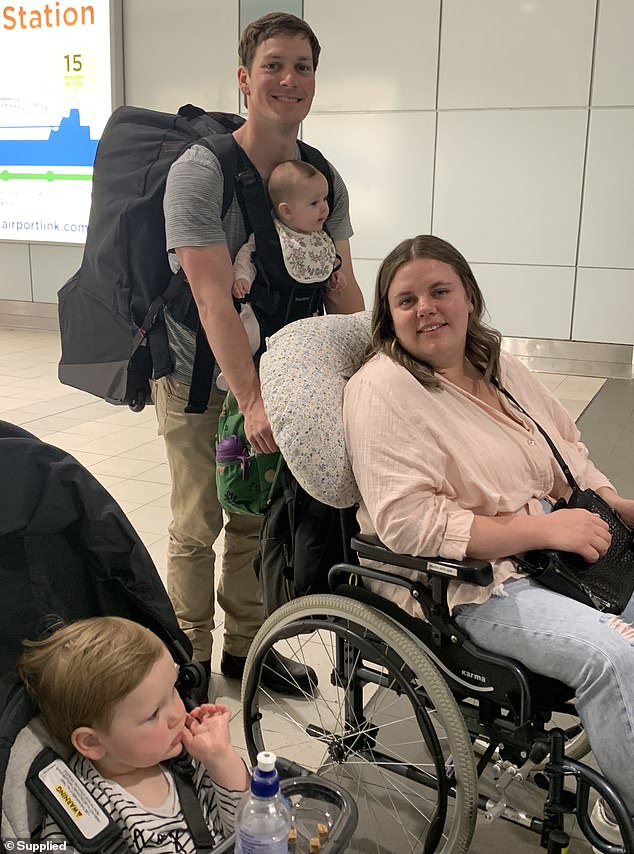
Amy is now a paraplegic, she can barely speak, she has the constant support of her caregivers and family, but her mind is still active with thoughts (pictured today).
The mild symptoms began when Amy was seven months pregnant with her second daughter, Georgia, in 2022, but at the time doctors thought they were related to the pregnancy.
She began to limp and developed a waddling gait and experienced severe cramps, leg spasms, and frequent falls toward the end of her pregnancy.
Amy herself didn’t believe anything sinister was going on, but admitted it was unusual.
After giving birth in May 2022, her symptoms worsened and five days later she was having difficulty picking at food and her lameness worsened.
Before her diagnosis, Amy enjoyed combing her hair, but found even the simplest tasks difficult.
“My arms hurt when I washed or dried my hair, which I did once or twice a week,” she said.
One day, while Amy was changing Hannah’s diaper, who was 18 months old at the time, the baby kicked her, causing her to stumble backward and hit the door.
That’s when Amy knew something wasn’t right.
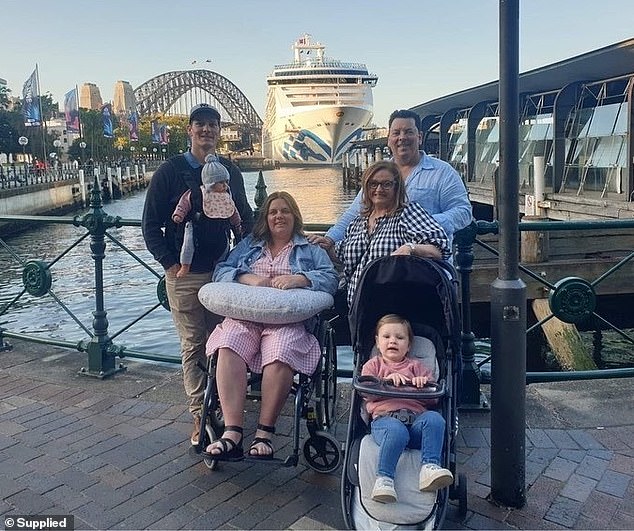
The minor symptoms began when Amy was seven months pregnant with her second daughter, Georgia, in 2022, but at the time doctors thought they were just common pregnancy symptoms.
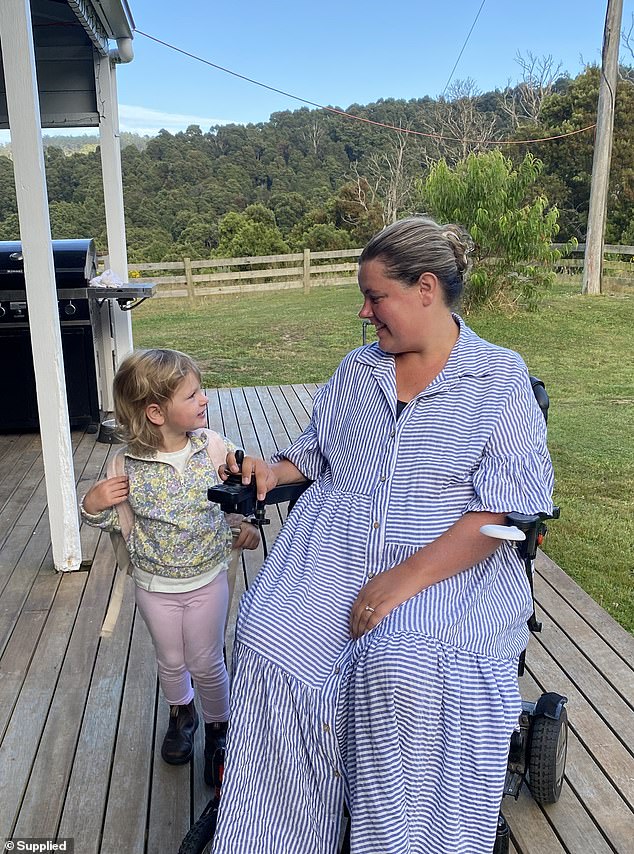
The causes of ALS remain unknown and there are no treatment options available. Currently, in Australia, only one TGA-approved drug slows the progression of ALS. As Amy is still breastfeeding Georgia, she is not eligible.
Despite several tests, nothing unusual was found, so a “process of elimination” began until it was concluded that Amy must have ALS.
There is no test for ALS, which means doctors must rule out all other possibilities before reaching a diagnosis.
This also meant that he probably had just over two years left to live after diagnosis.
“There’s nothing that can prepare you for something like this. It’s like a rollercoaster of emotions where you wonder what’s next. Will I wake up tomorrow and not be able to talk? Will my legs still be strong enough? Will I still be able to eat and drink?” Amy said.
“Thinking about our future is something I’ve always dreamed of and now we plan more month by month. It’s very painful to think about what I’ll miss.
“I think I’m very lucky to have my two beautiful girls to focus on.”
Shortly after being diagnosed with the disease, Amy and Simon decided to get married and organised the wedding with a guest list of 100 people in five months. It was a very joyous occasion.
Life today seems very different than it did in 2022, but Amy is taking it day by day.
She can’t drive, needs a walker to get around the house and a wheelchair when she’s in crowds or traveling long distances. Amy can’t even lift her children anymore.
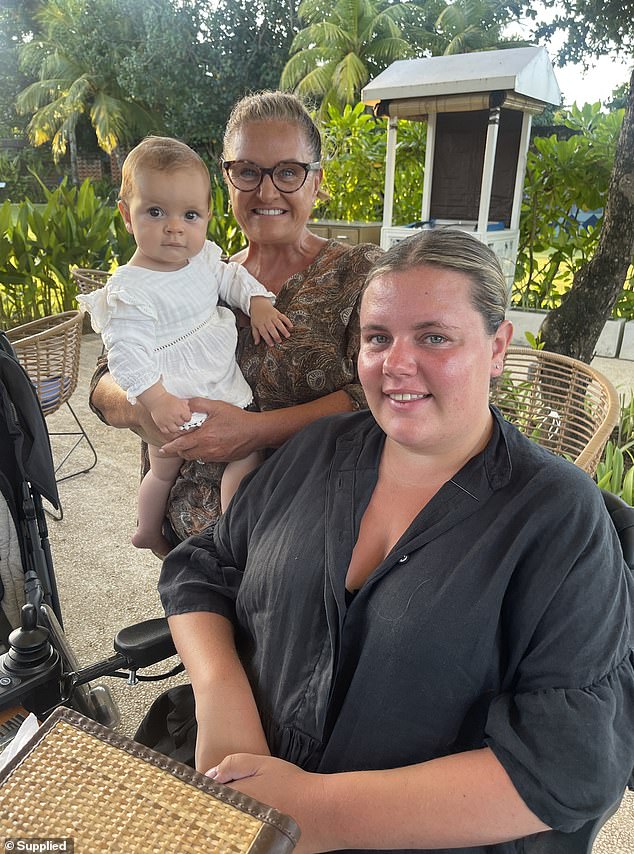
“Motor neurone disease progresses differently in each person. Hopefully she can survive a little longer. I hope that, as a younger patient, it’s an anomaly,” Amy said.
The causes of ALS remain unknown and there are no treatment options available.
Currently in Australia, only one TGA-approved drug slows the progression of ALS. As Amy is still breastfeeding Georgia, she is not eligible.
“We’re trying to live as normal a life as possible – we’re still going on vacation, taking road trips and traveling with our camper van,” she said.
Amy cries thinking about her future and her family’s future, but tries to remain positive.
“I always say that there is no point in being sad when there are so many reasons to be happy,” he said.
She has also noticed a difference in how people treat her.
“When you appear disabled, people treat you as if you are disabled, even if your mind is fine. I still think at exactly the same speed as before I was diagnosed, but my body can’t keep up,” Amy said.
‘That’s why it’s important to treat everyone equally.
“Motor neurone disease progresses differently in each person. I hope to be alive a little longer. I hope that, as a younger patient, it’s an anomaly.”
A link to Amy’s GoFundMe campaign can be found in the bullet points.

